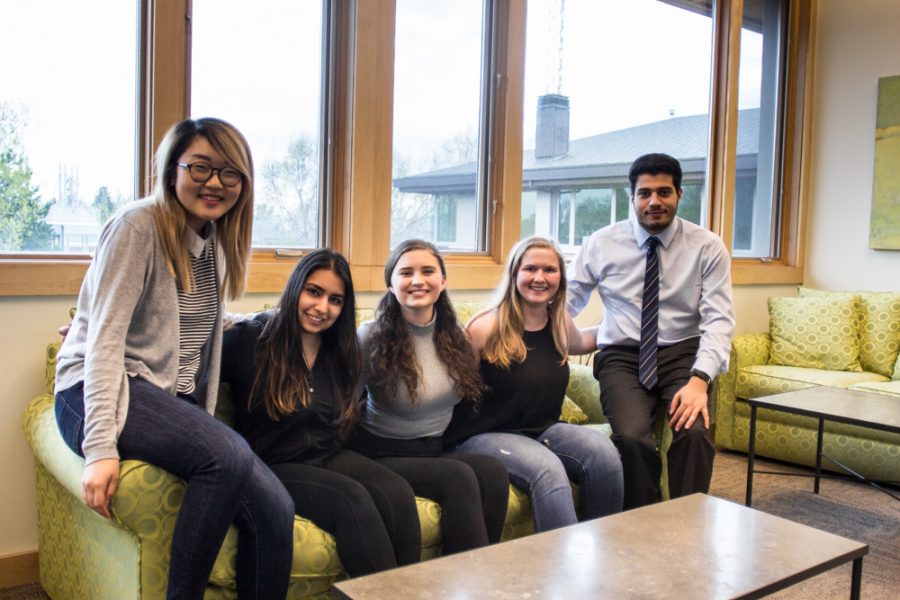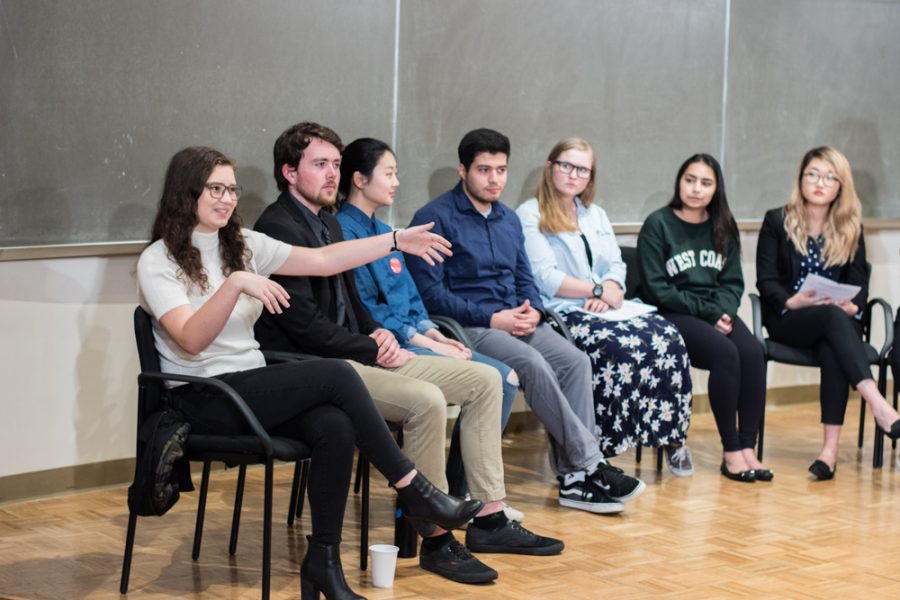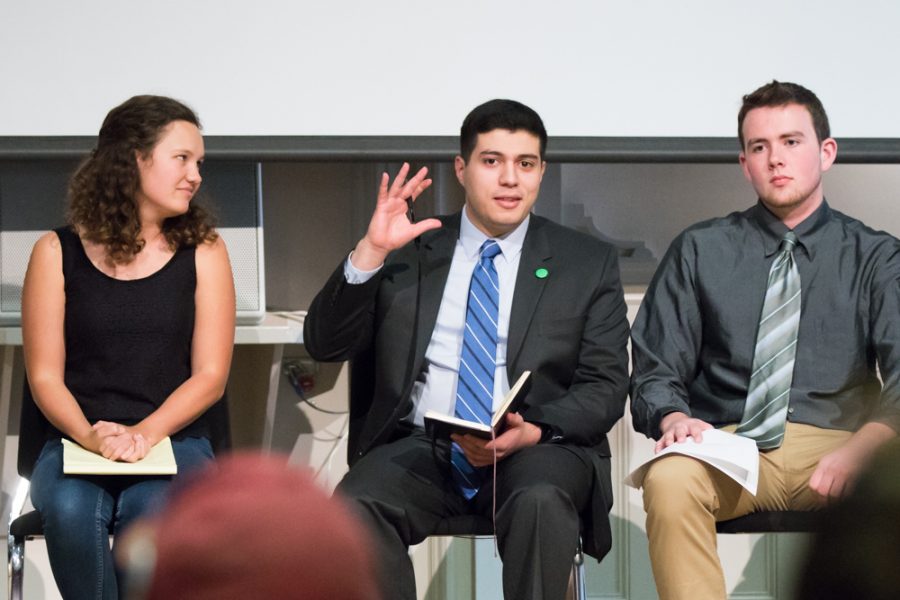A rising topic within the world of Whitman academia is the development of a stronger community-based learning culture in classes. Both Associated Students of Whitman College and the Student Engagement Center are interested in expanding students’ involvement with the Walla Walla community and beyond through community-based learning projects, which are aimed at integrating real-life experiences and projects into the curricula of classes to simultaneously solidify students’ learning and reach out to the community.
“Community-based learning is one way to help students who are learning about a discipline or a subject area or a theory,” said Assistant Dean for Student Engagement Noah Leavitt. “To have the chance to see, perhaps, how that idea or theory may play out, out in the world outside of the classroom, it’s a way of learning that opens up the ability to reflect upon and critique something that we read about or hear in a lecture or talk about in a discussion group.”
On Thursday, Nov. 8, Leavitt will be presenting the concept of community-based learning (CBL) to the Board of Trustees as an area of potential development for Whitman. Compared to other similarly sized liberal arts schools, Whitman lacks in utilizing the community for CBL projects.
“I came to Whitman expecting a stronger presence in classrooms of service learning or community-based learning,” said sophomore ASWC senator Nate Higby. “I expected more outside-of-the-classroom learning experiences, and I was kind of disappointed to see that that was kind of exclusive to science programs [like] geology.”
Higby, along with WEB director senior Hannah Holloran, wrote a resolution recently passed by ASWC that encourages the creation of a service learning coordinator position in the Student Engagement Center.
“I worked with Noah Leavitt and Hannah Holloran and we created a resolution that would encourage the creation of a position within the Student Engagement Center that would work solely to connect faculty members and community partners, help with the execution of the project and also help faculty members to find a way to integrate such a project into their curriculum,” said Higby.
This is not to say that community-based learning does not exist at Whitman. Physics Professor Kurt Hoffman and Assistant Professor of Psychology Pavel Blagov are two professors who have utilized CBL projects in the Walla Walla community. There also appears to be a clear correlation between newer teachers and an interest in CBL.
“As new faculty come to Whitman and join the academic program here, they bring with them a wider exposure to community-based learning through their academic programs than perhaps people who came to the college 15 to 20 years ago,” said Leavitt. “Community-based learning is something that, as people are moving through graduate programs now, is a more common part of their graduate experience.”
Although there is rising interest in significantly developing community-based learning, it is still very early in its development process.
“Last spring [Noah and I] had conversations with over fifteen faculty about experiential learning more broadly, and many of those faculty were interested specifically in enhancing opportunities for community-based learning,” said Associate Dean of Faculty Lisa Perfetti in an email. “However, we are still in earlier stages of our investigation into what specific opportunities would best suit the needs both of our faculty/curricula and of our community partners.”
The ASWC resolution concerning the creation of a CBL coordinator position points to different reasons that CBL would benefit both Whitman students and the community, and why this is an essential in which Whitman may currently be subpar. In an ASWC survey of 262 students, 66.8 percent believed that expanded research opportunities with professors and community organization internships would improve their academic quality of life at Whitman. Out of 42 faculty members surveyed, over half believed that Walla Walla benefits from student engagement in the community.
The resolution request that the Office of the Provost prioritizes the hiring of such a coordinator within the next two years. The resolution falls in line with Leavitt’s work and presentation to the Board of Trustees last spring concerning CBL and also the “Now is the Time” campaign, which has the goal of enhancing and enriching students’ academic experiences and providing faculty with support to provide a quality education.









